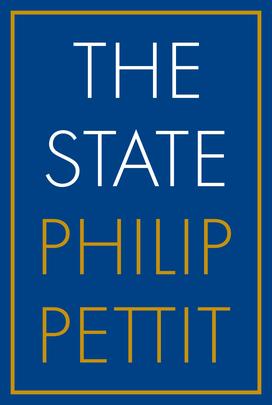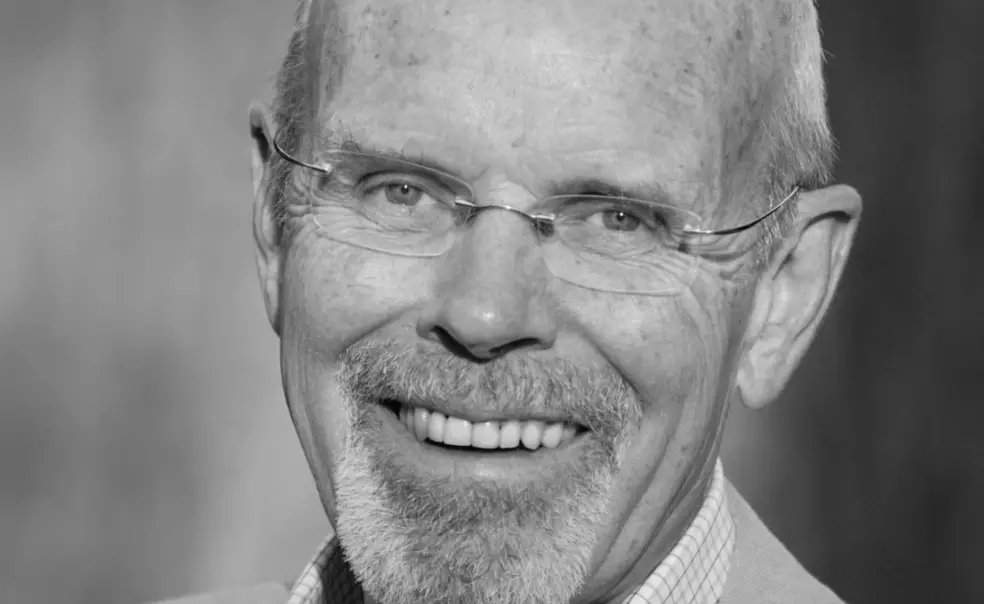Professor Philip Pettit Makes a Case for the Value of The State in New Book
The book: In The State (Princeton University Press), political philosopher Philip Pettit examines the nature of the state and its capacity to serve goals. He highlights the implications of the state including its impact on economics, laws, justice, peace, and social theory, to ultimately present a possible ideal of an institution that lies at the center of our lives. Looking at some of the challenges that lie ahead — population growth, nuclear arms, extreme poverty, and climate change to name a few — Pettit makes the case for the state to step in to better the lives of its citizens.

The author: Philip Pettit is the L.S. Rockefeller University Professor of Politics and Human Values at Princeton University. He has taught political theory and philosophy at the University since 2002. His work focuses on moral and political theory and on the philosophy of mind and metaphysics. He is also the author of a number of books and publications including The Robust Demands of the Goods.
Excerpt:
For a century or more, competing states or polities have claimed and controlled most of the surface of the earth; the only exceptions are international waters and some areas of wilderness. While it has taken millennia for the network of states to extend over the whole planet, and while that network is consistent with continuing shifts in the distribution of power and territory, it looks now like an arrangement that is destined to survive, at least in the absence of massive shocks. It might be disrupted or undone by catastrophic climate change, by a large meteor strike, by a rampant plague, or by a nuclear world war. But short of such a radical shock, the state system is likely to stay around for the foreseeable future.
The status quo is stable for at least three reasons. First, no people can hope to live without a state in their territory; in the absence of a state their land would surely be taken over, perhaps as a protectorate, by one or another rival regime. Second, no regime is so strong that it can hope to drive others to extinction and establish itself in sole possession of the earth. And third, the distrust between peoples is likely to block the formation of a binding, sustainable contract in support of a global government.
The states that constitute this stable network are all coercive, territorial regimes in which an individual ruler or a ruling group exercises power over other residents, asserting the right to act for them in maintaining interstate relations. But otherwise, those regimes vary enormously in how they are organized, how they treat their subjects, and how they behave toward other states.
The inescapability of the worldwide state system means that the future and welfare of our species—and perhaps that of others too—depends on how states perform. It is only if we can recruit states individually and collectively to the service of human flourishing that we can hope to deal with climate change, pandemic threat, chronic deprivation, and the eruptions of inhumanity that seem to come with our genes. The ideal of justice within peoples and between peoples continues to capture the human imagination. But we can hope to advance along the path to justice only if we can steer the state onto that road.
This is a challenging demand, for the state or polity is an institution with a very mixed record. While it has often been a force for domestic order and welfare, and sometimes international accord, it has just as often enabled the few to lord it over the many, legitimated xenophobia within and without its borders, and given a license to violence and war. Can we really expect it to be able to serve the cause of justice? Is it up to the task?
The properly functional polity may fall well short of justice, but the ideal of statehood that it embodies is still significant. While the functional polity serves only the citizens well, the citizenry it serves may be inclusive, and even if they are not inclusive, the state cannot be required by its function to support the subordination of noncitizens. How will the functional polity serve its citizens? By establishing and entrenching laws that enable them to tell how they may act with legal impunity and under legal protection. It will provide this service more reliably to the extent that it is incorporated enough to make the laws determinate, yet decentralized enough to guard against the danger of capture by private interests. Thus, the fully functional state should give each citizen a reliable, determinate zone of legal security, however limited it may be, within which they can decide on how they want to live their lives.
How does the ideal of statehood so interpreted relate to that of justice? Broadly in the way that the ideal of prudence relates to that of morality. As the demands of prudence on an individual are a subset of those of morality, so plausibly the demands of statehood are a subset of those of justice. As the demands of prudence are conditions that an agent must satisfy to count properly as a person—or at least an intertemporally connected person—so the demands of statehood are conditions that the state must satisfy to be properly a state. And as the demands of prudence may be satisfied in different degrees by an individual, so a state may satisfy the demands of statehood in different degrees.
But not only does the ideal of statehood square in this way with the ideal of justice; it also directs us to the range of questions that a theory of the just state should surely consider. How broad should the category of citizenship be? How deep should be the security that the law provides for citizens in relation to one another? How deep should be the security that it provides in relation to those—those other citizens, as we assume—in public office? And how should the state behave in relation to the peoples of other states, presumably as part of an international community?
Our account of statehood should serve, then, to orient discussion of what justice requires of the state. But it should also emancipate the discussion from some traditional barriers. Arguing that statehood is not challenged in the manner envisaged by absolute statists, right-wing libertarians, or laissez-faire thinkers, the account of statehood opens up questions that those doctrines would shut down. How far does justice require that the citizenry should have collective powers against the state? How far does it require that individual citizens should enjoy significant rights against one another and against the state? And how far does it allow or necessitate intervention in the market economy?
Excerpted from THE STATE by Philip Pettit Copyright © 2023 by Princeton University Press. Reprinted by permission of Princeton University Press.
Reviews:
“Magisterial and defining. Pettit is one of the world’s greatest political philosophers; this book offers clarity and wisdom on every page.”—Cass R. Sunstein, author of #Republic: Divided Democracy in the Age of Social Media
“Philip Pettit continues to inspire. This groundbreaking book offers original answers to questions any political philosopher needs to ask: What kind of entity is the state? Why are we justified in holding such an entity responsible? What possibilities are feasible in terms of its structure and functioning?”—Victoria Costa, College of William & Mary










No responses yet